Search
Did you mean: Nile?
Search Results

Image
Terracotta Oil Lamp with Mars
Terracotta oil lamp depicting Mars riding a chariot. It dates from the 2nd century CE. (Staatliche Antikensammlungen, Munich)
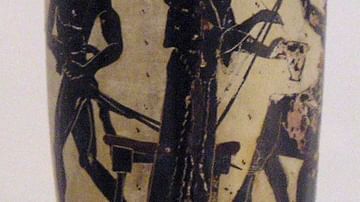
Image
Circe On a 490–480 BCE Oil Jar, Athens-National Archaeological Museum
Circe and Odysseus, white-ground lekythos by the Athena Painter, ca. 490–480 BCE. From Eretria. National Archaeological Museum in Athens, 1133.
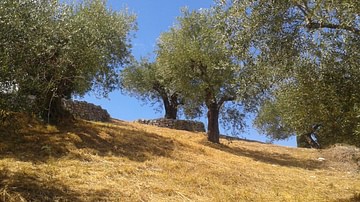
Article
The Olive in the Ancient Mediterranean
Olives and olive oil were not only an important component of the ancient Mediterranean diet but also one of the most successful industries in antiquity. Cultivation of the olive spread with Phoenician and Greek colonization from Asia Minor...
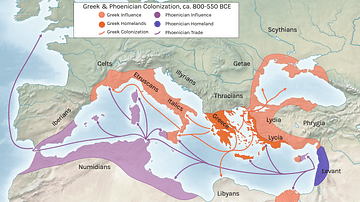
Lesson Pack
Economy & Trade in Ancient Greece
We have prepared five lesson plans including classroom activities, assignments, homework, and keys as well as: Multiple choice quiz questions in an excel format Glossary of keywords and concepts in an excel format Open questions adaptable...
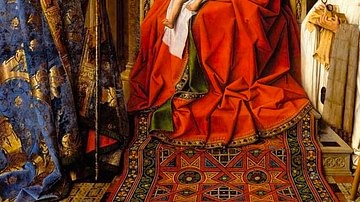
Article
Colour & Technique in Renaissance Painting
There were three principal painting techniques during the Renaissance: fresco, tempera, and oils. In all of these techniques, colour was an important part of the painter's armoury, allowing them to create images that would strike a chord...
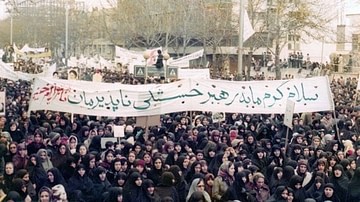
Definition
Iranian Revolution
The Iranian Revolution (1978-1979) was the social movement that arose from widespread and diverse discontent with the monarchic government of Iran. The revolution was fought against the regime of Mohammad Reza Shah (r. 1941-1979), and it...
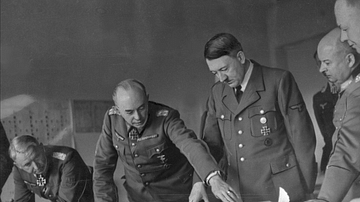
Article
Why Did Hitler Attack the USSR?
Adolf Hitler (1889-1945), the leader of Nazi Germany, was intent on attacking the USSR in the summer of 1941. With Western Europe subdued in 1940, Hitler could finally pursue his dream of territorial expansion in the East, destroy Bolshevism...

Article
Trade in the Roman World
Regional, inter-regional and international trade was a common feature of the Roman world. A mix of state control and a free market approach ensured goods produced in one location could be exported far and wide. Cereals, wine and olive oil...
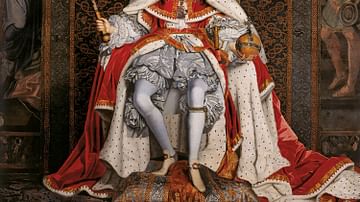
Article
The Coronation Ceremony of the British Monarchy
The coronation ceremony of the British monarchy as we know it today involves many elements that have been a part of the pageantry ever since the 11th century. Such features of the ceremony carried out in Westminster Abbey since 1066 have...
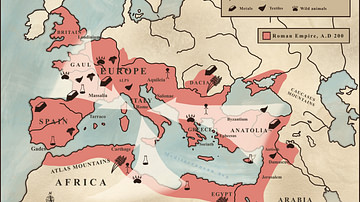
Image
Trade in the Roman Empire Map (c. 200 CE)
This map shows the major sources of trade goods in the Roman Empire, circa 200 CE. The map shows the sources of the following trade goods: grain, olive oil, slaves, wine, metals, textiles and wild animals.